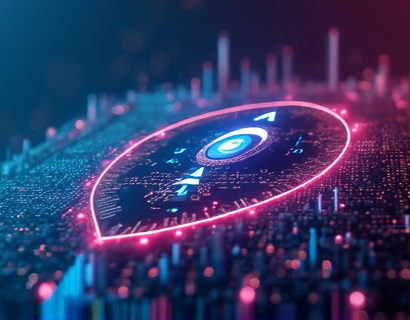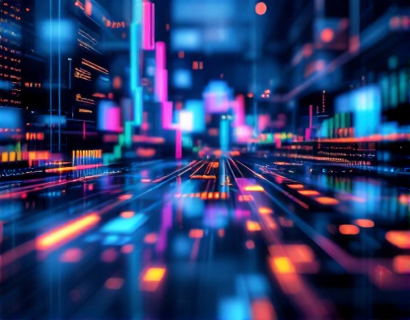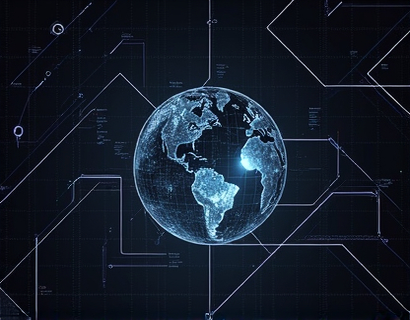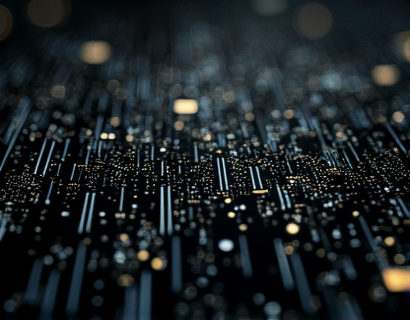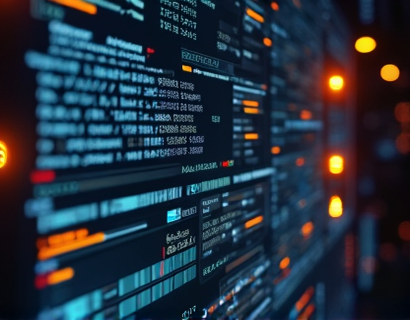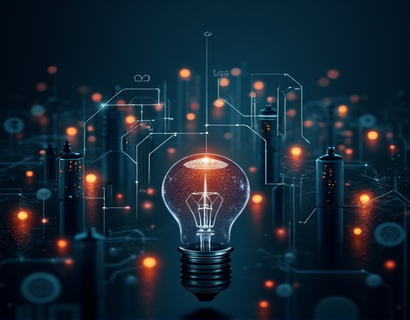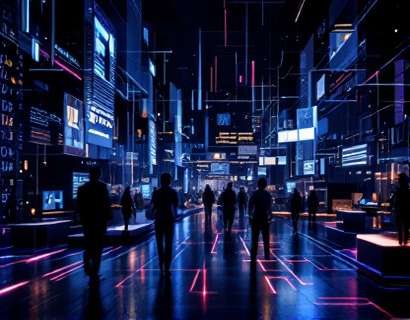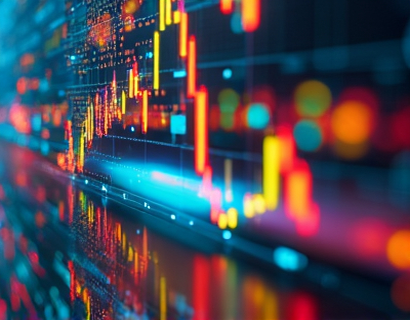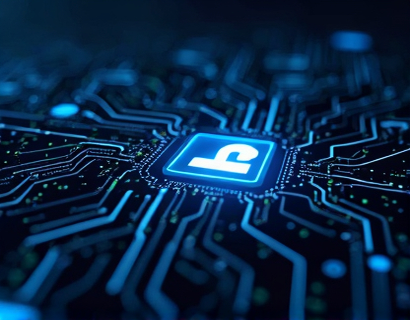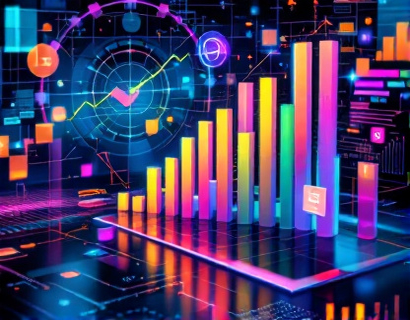AI and Crypto: Revolutionizing Ucosystem Experiences for Digital Growth and Engagement
The intersection of artificial intelligence (AI) and cryptocurrency is ushering in a new era of digital transformation, fundamentally altering how we interact with technology and each other. This merging of technologies is not just a trend but a pivotal shift that promises to enhance user experiences, drive innovation, and redefine the digital landscape. For tech innovators and early adopters, understanding this synergy is crucial to staying ahead in a rapidly evolving market. This article delves into the transformative impact of combining AI and cryptocurrency, offering strategic insights for those looking to leverage these technologies to thrive in the digital age.
The concept of a ucosystem, a term that blends ecosystem and universe, refers to a comprehensive digital environment where various applications, services, and communities coexist and interact seamlessly. This ecosystem is powered by blockchain technology, which ensures transparency, security, and decentralization. When AI is integrated into this ucosystem, the potential for innovation and user engagement becomes immense. AI can analyze vast amounts of data to provide personalized experiences, optimize processes, and predict user behavior, all while the immutable and secure nature of blockchain ensures trust and reliability.
One of the primary ways AI enhances ucosystem experiences is through personalized user interactions. Traditional systems often rely on generic content and one-size-fits-all solutions, which can lead to user disengagement. AI-driven algorithms can analyze user preferences, behavior, and context to deliver tailored content and recommendations. For instance, in a decentralized social media platform, AI can curate a feed that reflects the user's interests, connections, and past interactions, creating a more engaging and relevant experience. This level of personalization not only increases user satisfaction but also fosters deeper community connections and loyalty.
Another significant advantage of AI in uecosystems is its ability to enhance security and fraud detection. Blockchain's inherent security features are bolstered by AI's advanced analytics capabilities. AI can monitor transactions and user activities in real-time, identifying patterns that indicate potential fraud or malicious behavior. This proactive approach to security helps maintain the integrity of the ucosystem, ensuring that users can transact and interact with confidence. For example, in a decentralized finance (DeFi) platform, AI can detect anomalies in trading patterns and alert users or automatically halt suspicious activities, minimizing the risk of financial loss.
AI also plays a crucial role in optimizing the operational efficiency of uecosystems. Smart contracts, self-executing contracts with the terms directly written into code, can be enhanced by AI to automate complex processes and decision-making. AI can analyze data from various sources to execute smart contracts more intelligently, ensuring that all conditions are met and reducing the need for intermediaries. This not only speeds up transactions but also lowers costs and increases transparency. In a supply chain management uapp, AI can predict demand, optimize inventory, and automate payments, creating a smoother and more efficient process for all parties involved.
Moreover, AI-driven chatbots and virtual assistants are revolutionizing customer support within uecosystems. These AI-powered tools can handle a wide range of queries and issues, providing instant and accurate responses. Unlike traditional customer support, AI chatbots can operate 24/7, ensuring that user needs are met at any time. In a decentralized gaming platform, for instance, AI chatbots can assist players with in-game questions, provide tips, and even facilitate transactions, enhancing the overall gaming experience. This level of support not only improves user satisfaction but also reduces the burden on human support teams, allowing them to focus on more complex tasks.
The integration of AI and cryptocurrency also opens up new possibilities for data monetization and user incentives. In a uecosystem, users often generate valuable data through their interactions, which can be leveraged to improve services and create new revenue streams. AI can help in the ethical and transparent monetization of this data, ensuring that users are fairly compensated for their contributions. For example, a decentralized data marketplace can use AI to match data providers with buyers based on data quality and relevance, while ensuring that data owners receive a fair share of the profits. This creates a win-win situation where users are incentivized to participate actively in the uecosystem, driving growth and engagement.
Furthermore, AI can enhance the governance and decision-making processes within uecosystems. Decentralized autonomous organizations (DAOs) can benefit from AI by automating voting processes, analyzing community sentiment, and predicting the outcomes of proposals. AI can process large volumes of data to identify trends and preferences, helping DAOs make more informed and democratic decisions. This not only streamlines governance but also increases transparency and accountability, fostering a stronger sense of community and trust among participants.
The synergy between AI and cryptocurrency is also driving innovation in the realm of digital identity and privacy. Blockchain provides a secure and decentralized way to manage digital identities, while AI can enhance this by creating robust and adaptive identity verification systems. AI algorithms can analyze biometric data, behavioral patterns, and other factors to verify user identities with high accuracy and minimal friction. This ensures that users can securely access various services within the uecosystem without compromising their privacy. For instance, in a decentralized identity management platform, AI can verify a user's identity for accessing a financial service, ensuring both security and convenience.
Another area where AI and cryptocurrency are making a significant impact is in the development of decentralized applications (dApps). AI can optimize the performance and user experience of dApps by analyzing usage patterns, predicting load times, and automating resource allocation. This ensures that dApps run smoothly and efficiently, even under high traffic conditions. For example, in a decentralized marketplace, AI can dynamically adjust server resources based on real-time demand, preventing lag and ensuring a seamless shopping experience for users. This level of optimization is crucial for the widespread adoption of dApps and the overall health of the uecosystem.
In addition to these practical applications, the combination of AI and cryptocurrency is fostering a new wave of innovation in the development of uecosystem tools and platforms. Developers are creating sophisticated frameworks and libraries that make it easier to build and integrate AI-powered features into blockchain applications. These tools lower the barrier to entry for developers, enabling more innovative solutions to emerge. For instance, a developer can use an AI framework to build a smart contract that automatically executes complex financial derivatives, combining the reliability of blockchain with the intelligence of AI.
The future of uecosystems is bright, with AI and cryptocurrency at the forefront of this transformation. As these technologies continue to evolve, we can expect even more sophisticated and seamless integrations. The potential for AI to enhance user experiences, ensure security, optimize operations, and drive innovation is immense. For tech innovators and early adopters, embracing this synergy is not just an option but a necessity to stay competitive and relevant in the digital age. By leveraging the power of AI and cryptocurrency, they can create uecosystems that are not only more engaging and secure but also more resilient and sustainable.
In conclusion, the merging of AI and cryptocurrency is revolutionizing uecosystems, offering unprecedented opportunities for digital growth and engagement. By personalizing user experiences, enhancing security, optimizing operations, and fostering innovation, this synergy is reshaping the digital landscape. For those looking to thrive in this evolving environment, understanding and embracing the potential of AI and cryptocurrency is essential. The future is here, and it is powered by the intelligent and secure forces of AI and blockchain.









